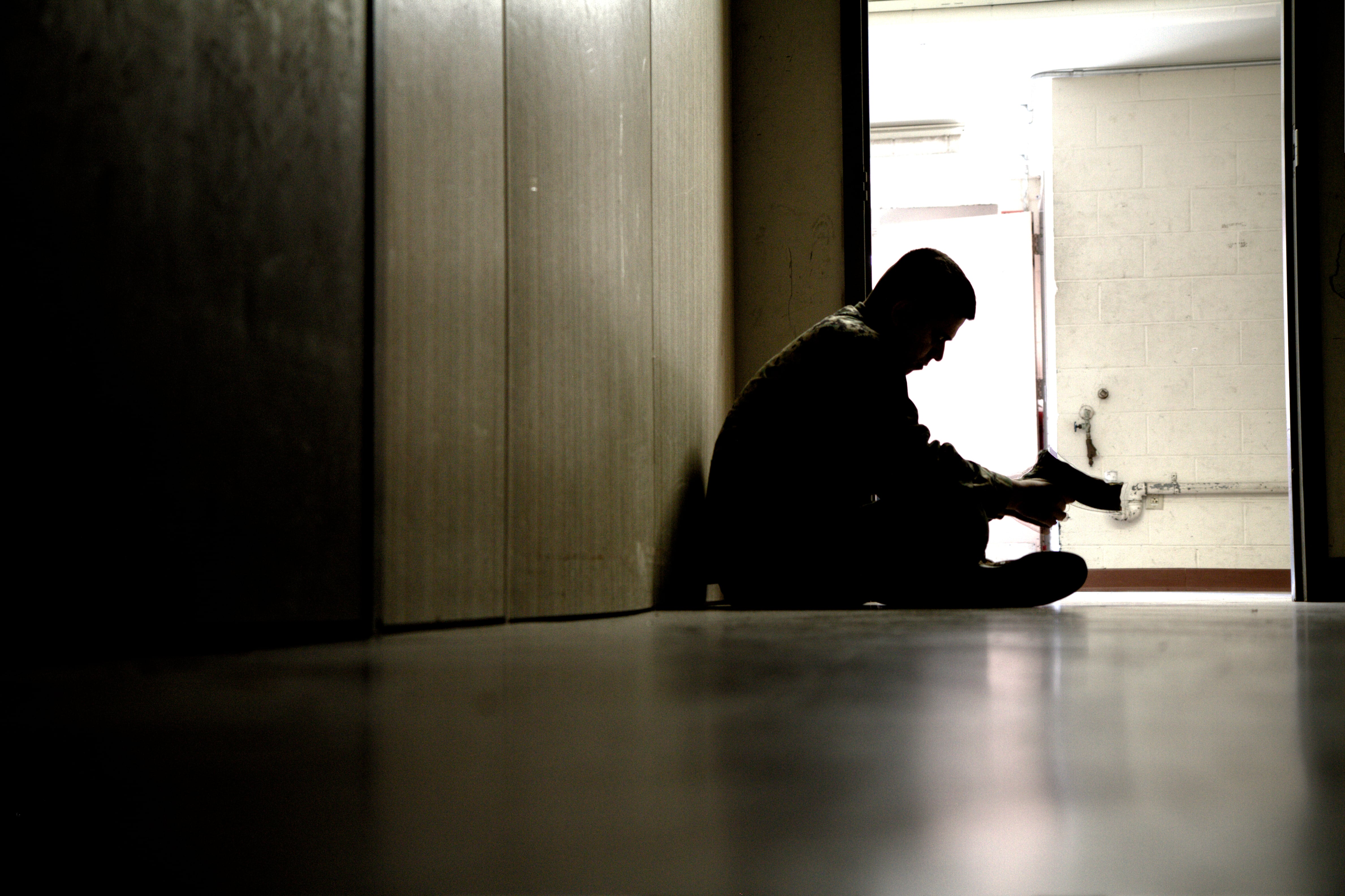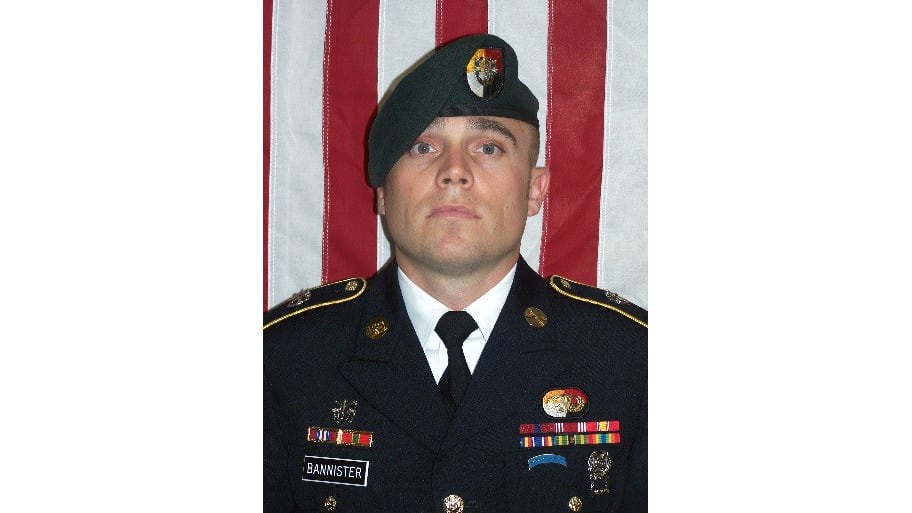A year ago, a Special Forces soldier serving in Kenya, who was days away from coming home, signed out a Toyota Hilux truck and a Glock pistol, drove to a shooting range and ended his life.
A 78-page investigation by Army Criminal Investigation Command, obtained by Army Times through a Freedom of Information Act request, found that Sgt. 1st Class Zachary Bannister was a friendly, outgoing operator who loved his job and his wife, and had no ongoing financial or personal issues to speak of.
Still, there were “obvious signs of a suicidal thought process, but ... it’s only really shown just prior of the incident occurring,” according to one behavioral health expert who reviewed the investigation for CID.
His family, however, has appealed the Army’s finding, his widow, Lindsay, told Army Times. She declined to elaborate on the situation.
“Sgt. 1st Class Bannister was and will always be a valued member of our organization,” Capt. Chris Webb, a spokesman for 3rd Special Forces Group, told Army Times in a statement. “Our deepest condolences are with the Bannister family.”
Webb added that Bannister’s family received a “complete brief” on the findings of the investigation.
Bannister, 33, was a weapons sergeant with 3rd Special Forces Group, whose team had been deployed to a Manda Bay, Kenya, navy base since late spring 2016 to train local forces.
On Oct. 17, 2016, members of the Kenyan ranger regiment discovered his body at the Camp Simba Firing Range, just after 7 a.m. local time, according to the report.
It was the same day Bannister and his team were scheduled to begin the trip back home to Fort Bragg, North Carolina, where the soldier’s wife of nearly a year — whom he spoke to every day — was preparing for a vacation to Hawaii, a fellow Green Beret told the investigator.
“I spent three quarters of the deployment with Zach, and he was an awesome instructor, always cheerful, and he always told me ‘good job’ for what I did at the end of the day,” the staff sergeant, whose name was redacted, told the Naval Criminal Investigative Service agent who originally responded to the case.
That morning, the unit got a call that a Kenyan ranger had been shot, so they headed out to the range to help. But their wires had gotten crossed, and when they got there, they saw Bannister on the ground next to the truck, the Glock in his hand.
“That’s when we found Zach was laying on the ground in uniform, with blood coming out of his head,” the staff sergeant said. “We couldn’t do anything else at that point because it was too late.”
‘Joyful as usual’
Fellow soldiers had last seen Bannister the night before, at dinner after packing up their gear in preparation for the trip home, or passing from the shower to their tent later that night.
“Zach seemed joyful as usual,” one soldier said.
Bannister had packed up his personal belongings and added them to one of the shipping palettes in preparation for redeployment, according to the investigation.
But the next morning, just after 5 a.m. the gate guard saw Bannister leave the compound in one of the base’s Hilux trucks, which he described as “unusual.”
“Normally, you call the camp commandant and let them know you are going to the range,” one staff sergeant told the investigator. “Normally the whole team would go. At least [redacted] and [redacted] would go with him.”
But Bannister hadn’t told anyone he was leaving. He had signed out the pistol and the truck, but neither required another person to give access to them.
“As soon as we got back to the camp, myself and Sgt. 1st Class [redacted] went to Zach’s room and saw that he laid out his wallet, knife, wedding ring, watch and sunglasses on a shelf on the wall,” the soldier said. “We also noticed he wrote a password on a sticky note, and stuck it to the top of his laptop computer.”
It was as if he had wanted to make everything easily accessible, the report found.
In the past decade, the Army and the Defense Department have undertaken a massive effort to reduce the suicide rate among service members, through training, resources and a cultural shift away from the stigma traditionally put upon people who ask for help.
Still, experts say, the services need to do better.
RELATED

‘I will never smoke myself’
Bannister grew up in Reynoldsburg, Ohio, and originally enlisted in the Marine Corps from 2003 to 2007. He came back to the military in 2010, enlisting into Special Forces, according to a release from 3rd SFG at the time of his death.
RELATED

He had done two deployments to Afghanistan and earned three Bronze Medals, one with the “V” device. Interviews with his fellow soldiers yielded few clues about what might have been plaguing Bannister, except for one.
The soldier had been involved in a “green on blue” attack during his first Afghanistan deployment, a sergeant first class told the investigator.
“Bannister stated he was in the thick of the incident, actually taking down the hostile who opened fire on friendlies,” according to the report. “Bannister would talk about how he would have nightmares of it and could not sleep.”
He did have various prescriptions for painkillers and sleeping pills, but the investigator found that they were not known to cause suicidal ideations when mixed, and that Ambien only had a track record in high doses.
A toxicology report found no drugs in Bannister’s system at the time of his death.
According to the investigation, Bannister’s wife was in disbelief that her husband had taken his life.
The Bannisters married in November 2015 and had no children.
His fellow soldiers described Bannister as fond of his wife, that he would talk to her every day, and that he never complained about her or anything else in his home life.
Bannister had spoken to her over video chat the afternoon before his death, for 19 minutes, then over text message.
She “had a hard time accepting that her husband may have killed himself,” the investigator wrote, partially because they‘d had a discussion about mental health before, and she described her husband as “full of life.”
“They actually discussed that if he felt that he could not talk to Mrs. [redacted] that he please talk to someone,” the report said. “Mrs. [redacted] stated her husband responded, ‘Don’t worry, babe. I will never smoke myself.’ “
Meghann Myers is the Pentagon bureau chief at Military Times. She covers operations, policy, personnel, leadership and other issues affecting service members.








